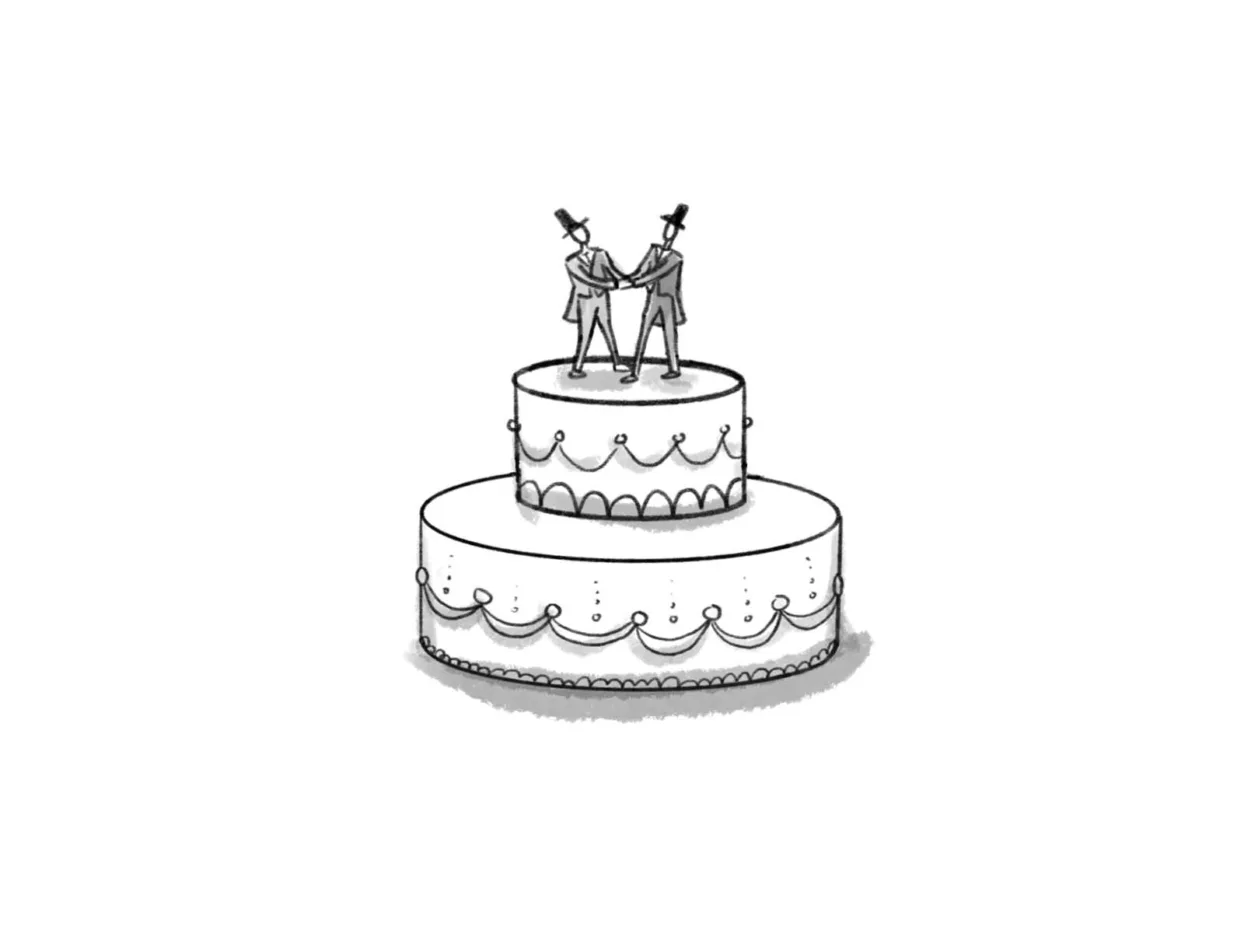
Image by Ivy Sanders Schneider

Image by Ivy Sanders Schneider
It was only twenty years ago that the Supreme Court, in Lawrence v. Texas, struck down bans on “homosexual conduct” and legalized physical intimacy between same-sex couples nationwide. Universal marriage equality, following the Court’s holding in Obergefell v. Hodges, has only been guaranteed since 2015. Taken together, these cases represent an extreme transformation in legal doctrine in only twelve years.
One could say that the last two decades of legal advancements for LGBTQ+ people represent a moral arc that trends toward inclusivity, or an inevitable expansion of rights by the high court. But the recent legislative tumult surrounding transgender Americans and drag artists speaks to just how frail this supposed progress is: in 2023, the year after we celebrated new protections for same-sex couples with the Respect for Marriage Act, we have seen a historic wave of state-level bills policing trans identity.
But queerness, which is as much a world-making philosophy as a sexual identity, rejects slow assimilation by dominant systems; the Court’s approval, whether from its current conservative supermajority or from liberal coalitions of the past, is part of one such system. When Clarence Thomas, the only current justice who was present for the Lawrence deliberations, wrote in his Dobbs decision that “in future cases, we should reconsider all of this Court’s substantive due process precedents, including Griswold, Lawrence, and Obergefell,” he expressed an eagerness to revoke the rights that the Court had guaranteed to queer people as recently as eight years ago.
After a cascade of stolen seats and dubious confirmations that expanded the conservative right’s legal reach, the high court has begun chipping away at anti-discrimination provisions protecting LGBTQ+ people with cases such as Masterpiece Cakeshop, Ltd. v. Colorado Civil Rights Commission, in 2018, and 303 Creative LLC v. Elenis in 2023. There is no better metaphor for the circular logic of the Court than the argument in the latter case, in which the conservative justices sided with a wedding website designer who hoped to deny service to queer clients. The opinion weaponized the First Amendment rights of the website designer to build its argument — the same amendment that had been used in twentieth-century cases like One, Inc v. Olesen and Manual Enterprises, Inc. v. Day to protect gay subcultures from legal reproach. The Court’s reversals come at a time when queer people find their rights increasingly destabilized,at the mercy of lower courts to determine whether or not we deserve access to healthcare or the freedom to express ourselves artistically.
But we would do well to remember that queerness means more than swapping out the figurines on top of a wedding cake. Queerness inherently questions — and disrupts — a society that is built on a strict binary of gender expression and that values individualism over community and collective power. It falls to us as queer people to continue our tradition of radical imagining, and to recognize that the Court’s amnesia presents an opportunity to continue organizing for our liberation. We must challenge the police, who have rounded up queer people in raids within living memory; the healthcare system, which leaves trans people reliant on crowdsourcing for gender-affirming care; and inequitable workplaces, which have produced the discrimination cases heard by higher and lower courts alike. We must even question the structure of the very Court that threatens us today. How malleable must these systems be, if even our foundational rights can be offered and rolled back by the same Court in under twenty years? The closet, at one point, seemed too daunting to overcome. Surely the limits of the Court’s imagination are surmountable, too.
Henry Hicks IV is a Washington, D.C.-based writer and organizer. His writing has appeared in Teen Vogue, In These Times, The Brooklyn Rail, and elsewhere.